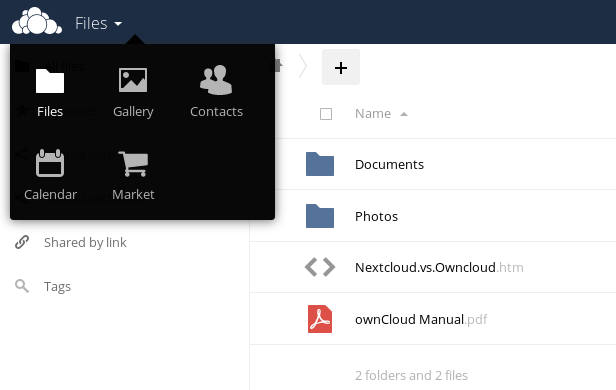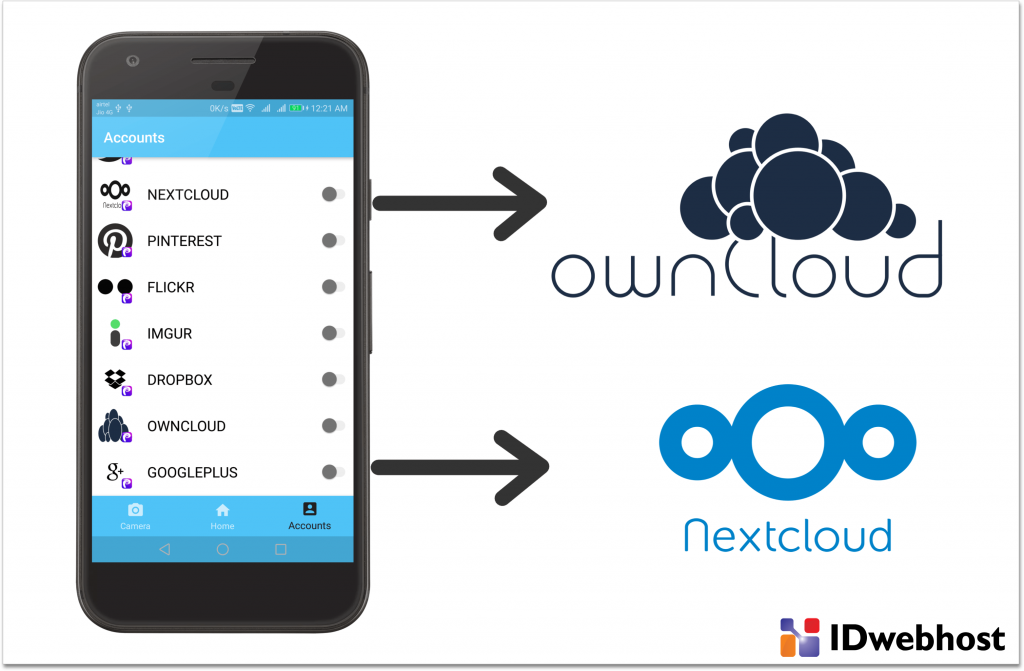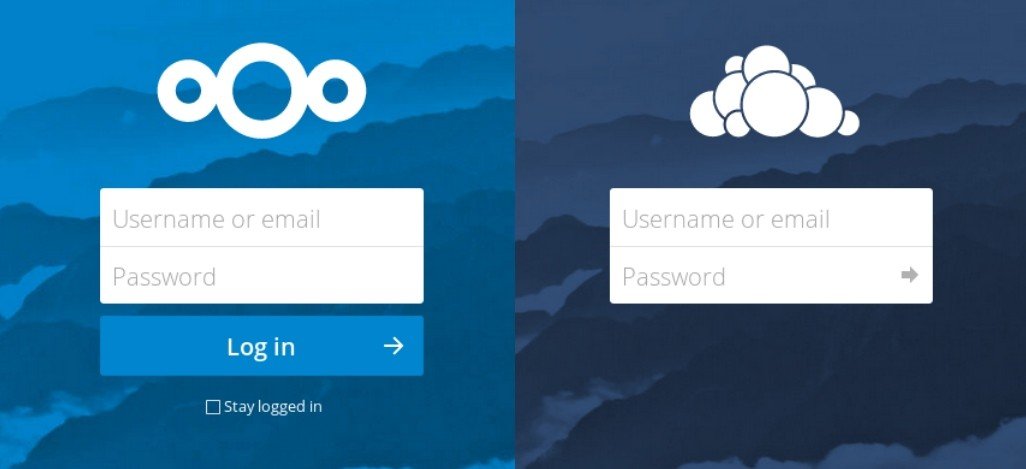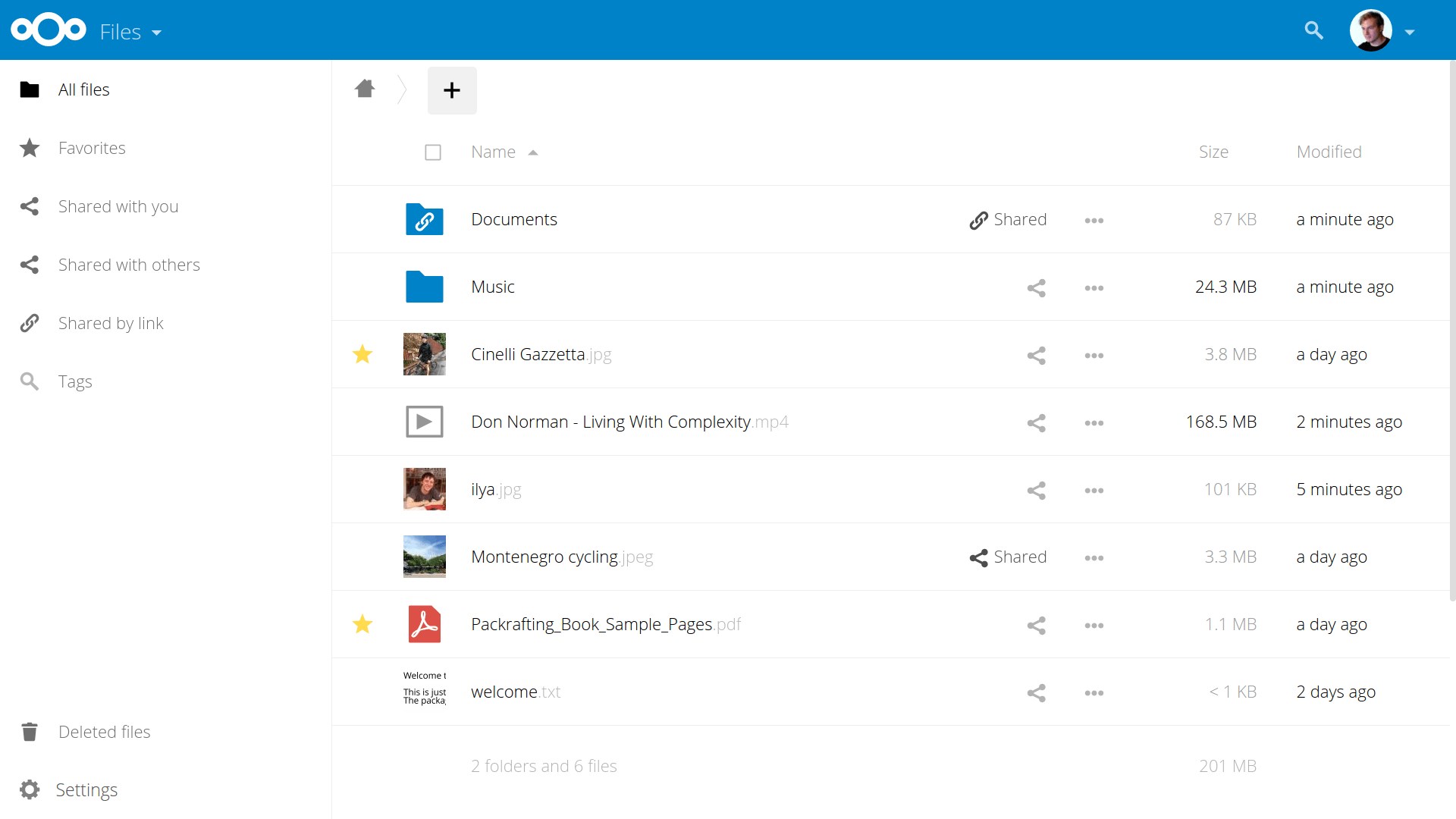

OwnCloud is installed with SQLite by default. etc/init.d/php7-fastcgi start activate PHP in nf Play around with memory_limit, I reduced the value form 8MB to 4MB … but maybe 50MB might be better with 64MB RAM. etc/php5/.ini should contains extension=.ini open_basedir= error_log = syslog doc_root =
#Owncloud vs install#
Opkg install php7-mod-mcrypt php7-mod-openssl php7-mod-fileinfo php7-mod-exifĬonfigure /etc/php.ini to our needs and change the doc_root to our www-root: Opkg install php7 php7-cgi php7-fastcgi php7-mod-json php7-mod-session php7-mod-zip libsqlite3 zoneinfo-core php7-mod-pdo php7-mod-pdo-sqlite php7-mod-ctype php7-mod-mbstring php7-mod-gd sqlite3-cli php7-mod-sqlite3 php7-mod-curl curl php7-mod-xml php7-mod-simplexml php7-mod-hash php7-mod-dom php7-mod-iconv php7-mod-xmlwriter php7-mod-xmlreader php7-mod-intl I am not sure if really all of these packages are necessary, but it seems so: etc/init.d/lighttpd start If <= 8MB flash: Get extroot To make sure the webserver is up after booting, insert this line into /etc/rc.local before “exit 0”: ( Insert how-to here)Įven if auto-mounting on startup works, it probably ends too late when the webserver tries to start. Get fstab to auto-mount the usb-stick on startup, otherwise your webserver won't come up and you have to start it after mounting manually. Mount -t ext4 /dev/sda1 /mnt/sda1 -o rw,sync It helps to list /dev with the USB-device and without - in this case its /dev/sda1. Opkg install kmod-usb-storage kmod-usb-storage-extras block-mount kmod-fs-ext4 kmod-scsi-genericįigure out which device is your USB-stick/drive and mount it. If you see messages like “unresolved symbol usb_calc_bus_time” try loading usbcore and then try ehci-hcd again: Install USB-support (this is for USB 2.0, see usb.essentials for USB 1.1 support)
#Owncloud vs update#
You have to run an update of the package-lists before you can install any software Have a look in the OpenWrt-Wiki at usb.essentials and usb.storage, and figure out what USB-mode your device is using (ohci or uhci) and know what filesystem is on your storage (here: ext4). So best both is done on some external storage because small routers don't have that much. Also, ownCloud offers the complete deployment package including managed hosting on-premises.OwnCloud is around 30 MB and you will like to store your data somewhere. Reap the benefits of reliability, high software quality and a compelling enterprise feature set.

OwnCloud is the open-source file sharing solution for businesses and institutions.

Why should one use ownCloud when there is Nextcloud? Corporate Nextcloud customers seem to have little influence on the product roadmap, because Nextcloud relies on the community for contributions. Nextcloud has the bigger communityĬommunity considerations seem to determine Nextcloud’s roadmap.
#Owncloud vs professional#
In support, development and the professional services team alone, ownCloud has 50 full-time staff. Since then, ownCloud has grown nicely to 75 employees. After Frank Karlitschek’s fork-up, barely a dozen of his closest associates left, while most software developers stayed with ownCloud, especially all teamleads and the technical management. ownCloud does not have any developers, they all moved to Nextcloud This may be of value to some users and community enthusiasts, but we think it is more sustainable in an enterprise environment to do only a few things, but do them well: Security, stability and continuity are close to our hearts. Nextcloud regularly releases new features and seems to aim at doing everything at once. This way, customers get the sovereign workspace fit for their requirements instead of a byzantine structure that tries to have it all. Whereas Nextcloud focuses predominantly on adding extra features at a considerable pace, ownCloud focuses on delivering an enterprise-grade file collaboration platform that supports well-defined open standards to integrate with best-of-breed applications. Since then, the two products developed in different directions.

#Owncloud vs code#
Nextcloud is a fork of the 2016 code base.


 0 kommentar(er)
0 kommentar(er)
